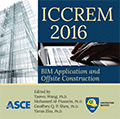International Conference on Construction and Real Estate Management 2016
Concession Period Flexible Adjustment Mechanism Analysis Based on the Condition of Risk in a PPP Project
Publication: ICCREM 2016: BIM Application and Off-Site Construction
ABSTRACT
With the construction wave in China’s infrastructure, financing has been one of the biggest problems, and public-private partnership (PPP) has been put forward to solve this problem. Undoubtedly, concession period is a key factor to the success of PPP projects. Previous literature, however, still lacks methodology of adjusting concession period flexibly. Hence, this research seeks to establish a mechanism on determination of extended or shortened concession period, taking risks into consideration which result in demand changes in operation phase, to guarantee the private sector a minimum profit or prevent huge profits. The principal findings of this research show that extension or contraction of concession period depends on the difference between the expected profit and real profit. Furthermore, this research aims to give some advice for the government about making decisions when demand changes in PPP project.
Get full access to this chapter
View all available purchase options and get full access to this chapter.
ACKNOWLEDGMENTS
I would like to take this opportunity to express my appreciation to all those who helped me with this paper, especially thank Prof. Hao Shengyue and Prof. Ren Xu, who have always guiding me with patience and giving me good advice. Meanwhile, I would like to extend my sincere gratitude to my beloved parents and friends for their supporting.
Foundation item: Supported by National Natural Science Foundation of China (71302025).
REFERENCES
Bao, H., Peng, Y., Ablanedo-Rosaa, J.H. and Gao, H. (2015). “An alternative incomplete information bargaining model for identifying the reasonable concession period of a BOT project.” International Journal of Project Management, 33(5), 1151–1159.
Carbonara N., Costantino, N. and Pellegrino, R. (2014). “Concession period for PPPs: A win–win model for a fair risk sharing.” International Journal of Project Management, 32(7), 1223–1232.
Chan, A.P.C., Yeung, J.F.Y., Yu, C.C.P., Wang, S.Q. and Ke, Y. (2011). “Empirical study of risk assessment and allocation of public–private partnership projects in China.” Journal of Management in Engineering, 27(3), 136–148.
Engel, E.M.R.A., Fischer, R.D. and Galetovic, A. (2001). “Least-present-value-of revenue auctions and highway franchising.” Journal of Political Economy, 109(5), 993–1020.
Grant, T. (1996). “Keys to successful public-private partnership.” Canadian Business Review, 23(3), 27–28.
Grimsey, D. and Lewis, M.K. (2002). “Evaluating the risks of public–private partnerships for infrastructure projects.” International Journal of Project Management, 20(2), 107–118.
Hanaoka, S. and Palapus, H.P. (2012). “Reasonable concession period for build-operate-transfer road projects in the Philippines.” International Journal of Project Management, 30(8), 938–949.
Jin, X. and Doloi, H. (2008). “Interpreting risk allocation mechanism in public-private partnership projects: An empirical study in a transaction cost economics perspective.” Construction Management & Economics, 26(7), 707–721.
Li, B., Akintoye, A., Edwards, P.J. and Hardcastle, C. (2005). “The allocation of risk in PPP/PFI construction projects in the UK.” International Journal of Project Management, 23(1), 25–35.
Ngee, L., Tiong, R.L.K. and Alum, J. (1997). “Automated approach to negotiation of BOT contracts.” Journal of Computing in Civil Engineering, 11(2), 121–128.
Nombela, G. and Rus, G. (2004). “Flexible-term contracts for road franchising.” Transportation Research Part A Policy & Practice, 38(3), 163–179.
Shen, L.Y., Li, H. and Li, Q.M. (2002). “Alternative concession model for build operate transfer contract projects.” Journal of Construction Engineering & Management, 128(4), 326–330.
Shen, L.Y. and Wu, Y.Z. (2005). “Risk concession model for Build/Operate/Transfer contract projects.” Journal of Construction Engineering & Management, 131(2), 211–220.
Shen, L.Y., Bao, H.J., Wu, Y.Z. and Lu, W.S. (2007). “Using bargaining-game theory for negotiating concession period for BOT-type contract.” Journal of Construction Engineering & Management, 133(5), 385–392.
Smith, N.I. (1995). Engineering project management, Blackwell Science, Boston.
Treasury, H.M. (2000). Public-private partnerships: The government’s approach, The Stationery Office, London.
Vassallo, J.M. (2006). “Traffic risk mitigation in highway concession projects.” Journal of Transport Economics and Policy, 40(3), 359–381.
Zhang, X. and AbouRizk, S.M. (2006). “Determining a reasonable concession period for private sector provision of public works and service.” Canadian Journal of Civil Engineering, 33(5), 622–631.
Zhang, X. (2009). “Win-win concession period determination methodology.” Journal of Construction Engineering & Management, 135(6), 550–558.
Information & Authors
Information
Published In
ICCREM 2016: BIM Application and Off-Site Construction
Pages: 822 - 828
Editors: Yaowu Wang, Ph.D., Professor, Harbin Institute of Technology, Mohamed Al-Hussein, Ph.D., Professor, University of Alberta, Geoffrey Q. P. Shen, Ph.D., Professor, The Hong Kong Polytechnic University, and Yimin Zhu, Ph.D., Professor, Louisiana State University
ISBN (Online): 978-0-7844-8027-4
Copyright
© 2017 American Society of Civil Engineers.
History
Published online: Aug 14, 2017
Authors
Metrics & Citations
Metrics
Citations
Download citation
If you have the appropriate software installed, you can download article citation data to the citation manager of your choice. Simply select your manager software from the list below and click Download.
